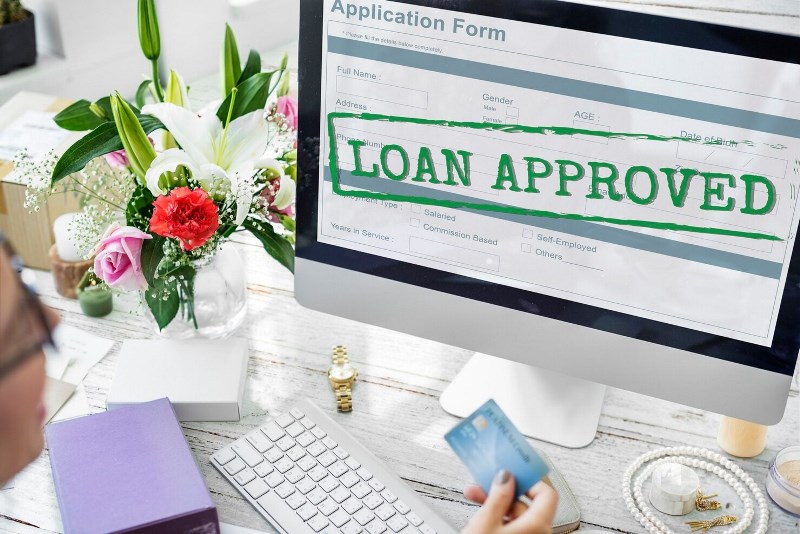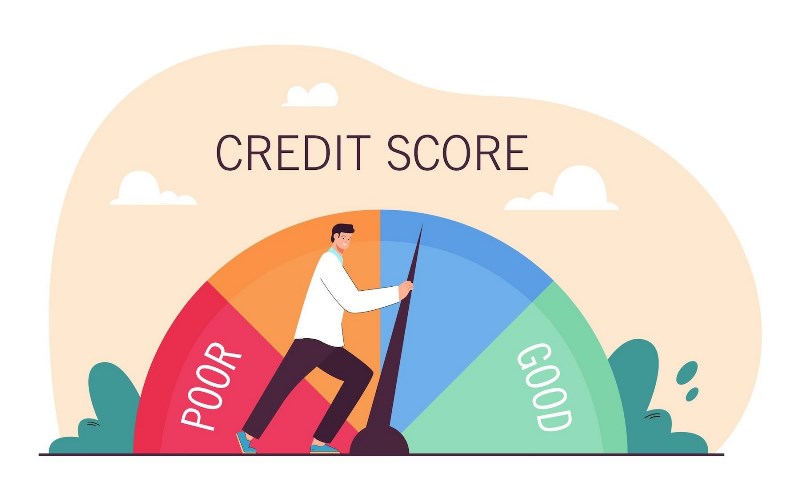Mortgage Loans: A Quick Guide To Conventional Loan Credit Score
When applying for a conventional loan, the credit score is one of the most critical factors. It’s not just your debt-to-income ratio or how much money you make that determines whether or not you get a loan. But it’s also your credit history and how long you’ve been managing your finances.
That said, there are things about a conventional loan credit score that many people don’t understand. And if you want to be able to shop around for the best deal. In that case, this guide should help clear up some common misconceptions on what are conventional loans and credit scores.
Understanding Mortgage Loans
If you’re planning to buy a property, understanding mortgage loans is essential in the home-buying process. Mortgage loans are utilized to purchase a home or refinance an existing mortgage. This allows homeowners to get lower rates and more favorable terms.
The most typical type of mortgage is the fixed-rate loan with a fixed interest rate that stays constant throughout the term of your loan. This can be great if you think your credit score will increase over time because it will lead to lower monthly payments.
What are Conventional Loans?
Conventional loans are mortgages not insured or guaranteed by the federal government. Usually, these are issued by banks and other financial institutions and can be used to purchase a home or refinance an existing loan.
Moreover, a conventional loan provides you with more flexibility than a government-insured mortgage. This is because you have a greater ability to negotiate terms with your lender.
However, these loans typically require a higher down payment than those backed by Fannie Mae or Freddie Mac. If you want home loans explained like conventional loans briefly but informatively. Then there are online resources such as https://mortgage.shop/conventional-mortgage-loans/, which will help you learn more.
What is a Conventional Loan Credit Score?
A conventional loan credit score is a credit score based on the FICO scoring model. This credit bureau uses your credit report to generate an overall score that indicates your likelihood to repay a loan. If you want to borrow money, lenders will consider this information on whether or not they’re willing to lend you money.
If you have a poor credit score, you may be denied a loan or have to pay higher interest rates. The required conventional loan credit score varies by lender and type of mortgage, but it’s typically 620 or above.
Conventional Loan Maximum Amount
The conventional loan amounts for a single-family home are determined by your credit score. Therefore, the higher the credit score, the more money you can borrow. The lower your credit score, the less money you can borrow.
For 2022, the conventional loan maximum amount is $647,200 for a single-family home. This figure applies to all lenders using Fannie Mae or Freddie Mac guidelines.
Factors that Affect Conventional Loan Credit Score
Knowing the factors that affect your conventional loan credit score is the key to getting a mortgage. You’ll want to focus on increasing your score to qualify for the best interest rate and payment options available. Below are five critical things that may affect your conventional house loan credit score:

Your Payment History
Your payment history affects your conventional loan credit score, calculated by a credit reporting agency. To keep your credit score high, you should pay your bills on time and in full.
However, If you have multiple accounts with different balances and interest rates, try to pay off the ones with higher interest rates first. This will save funds in interest payments over time.
The Length of Your Credit
The length of your credit history is one of the most critical factors in calculating your conventional loan credit score. The longer you’ve had a line of credit, such as a mortgage or car loan, the better your score will be.
A short credit history means you haven’t been around for very long. Therefore, you have less data to go off when determining whether someone should lend money to you.
Your New Credits
In addition to the factors that make up your conventional loan credit score, other factors, such as new credit accounts, can also affect it. New credit accounts include but are not limited to:
- Credit cards
- Auto loans
- Student loans
Each type of new credit account has a specific impact on your conventional loan credit score. For example, according to FICO’s website, student loans have little effect on your score because they typically have low balances and are used infrequently.
In contrast, credit cards impact your score most because they are used frequently by consumers. Plus, they provide access to more significant amounts of money than other types of new credit accounts.
The Amount of Debt You Owe
It’s important to note that not all debts are treated equally. The debt you owe affects your conventional loan credit score, calculated by a ratio of your income and the amount of debt you have.
For example, say you make $55,000 yearly but have $60,000 in total debt. Your DTI would be 90%, meaning that 10% of your gross income is going toward paying off debt every month.
If lenders feel they can’t trust that this person will pay back their loans and continue making payments on time. Then they may deny them a loan in the future.
Furthermore, if this happens over time, even if it’s due to unforeseen circumstances such as job loss or health issues. In that case, it could affect a person’s ability to get approved for other types of loans down the line too.
Your Type of Credit
Your type of credit affects your conventional loan credit score. The three primary types of credit are installment loans, credit cards, and mortgages. Each category has different impacts on your traditional loan credit score:
- Installment loans: This includes car payments, student loans, and personal lines of credit. These accounts will do less damage to your conventional loan credit score than other types of debt because they are typically repaid within a few years
- Credit cards: Credit card debt is the most damaging type of debt when calculating a person’s conventional loan scores. This is because it stays on their records longer than other forms of debt.
- Mortgages: These are the least damaging to your loan credit score. This is because they represent equity in real estate assets rather than income-producing assets like cars or boats.
Alternative House Financing Options
The conventional mortgage loan is the most popular form of financing, but it’s not the only one. Alternative house financing options can help you get into your home sooner and with less money down. Here are a few:
Government-Insured Loan
These loans are supported by the government and are therefore guaranteed to be paid back. The most common type of government-insured loans are VA loans and FHA loans.
They are insured by the Department of Veterans Affairs (VA) or the Federal Housing Administration (FHA). With this loan, the lender makes money off your interest rate. However, if you default on your payments, the lender gets paid back by the federal government instead of losing any money.
Fixed-Rate Mortgage
This is a loan whose interest rate is fixed for the loan’s entire life. This means that you’ll pay the same amount each month, regardless of whether rates rise or fall in the future.
While this may seem a disadvantage, it’s actually quite advantageous compared to adjustable-rate mortgages (ARMs). In addition, this type of loan is generally easier to qualify for than ARMs because they’re often available with lower credit scores.
Adjustable-Rate Mortgage
Adjustable-rate loans are mortgages in which the interest rate can change over time. The ARM’s interest rate is tied to a benchmark interest rate, such as the U.S. prime rate or London Interbank Offered Rate.
You can think of an adjustable-rate mortgage as two loans. First, where you borrow at your initial low fixed rate. Second, where you borrow at an adjustable interest rate that fluctuates over time based on the benchmarks mentioned above.
Jumbo Loan
A jumbo loan is a loan that surpasses the conforming loan limit. These loans typically go to people who want to buy high-value homes or need more money than they can get in a conventional mortgage.
Generally, jumbo loans are considered risky by lenders and usually require a higher interest rate and down payment. Because these loans are so expensive, they’re available only to borrowers with excellent credit.
Ways to Improve Your Conventional Loan Credit Score
Even if you’re a good candidate for a conventional loan, you may still be rejected because of your credit score. If this happens to you, don’t fret. There are plenty of ways to improve your credit score for your next conventional loan application.
- Pay all of your bills on time every month.
- Don’t carry a balance on your credit cards unless you know you can pay them off monthly.
- Avoid opening multiple new lines of credit at once.
- Pay off any debt before applying for a mortgage loan or other type of financing.
- Don’t close old credit accounts. Keep all your lines of credit open, even if they aren’t being used.
- Keep your credit utilization low. Credit card issuers like to see you utilize less than 30% of your available credit. So don’t max out any of your cards.
Conclusion
Generally, a conventional loan credit score measures the borrower’s ability to repay a loan. It’s calculated using data from various sources, like your income and current debt obligations. The higher your credit score, the better it is for you to qualify for loans or lines of credit with lower interest rates.
The good news is that conventional loan credit score requirements aren’t entirely set in stone. If your lender feels you have the financial responsibility to repay the loan, they will likely approve it. So, even if your score isn’t perfect, options are still available to get financing for your next real estate purchase.









